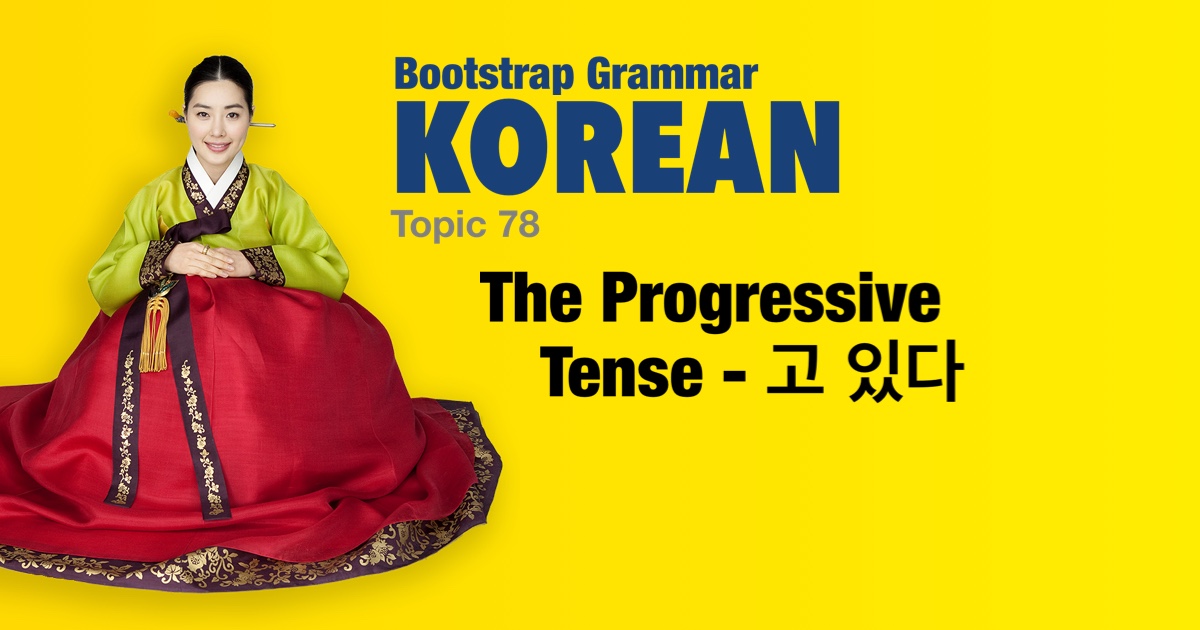Korean grammar - The Progressive Tense - 고 있다 |
|||
|
|||
Pattern: Verb stem + 고 있다 The progressive (or present continuous) denotes that an action is ongoing and long lasting. This is equivalent of the 'to be ~ing' form in English (for example: 'I am doing'). This tense is formed using the Verb ending + 고 있다. There are past, present and future forms: • Present Progressive: -고 있어요 (is doing) • Past Progressive: -고 있었어요 (was doing) • Future Progressive: -고 있을 거예요 (will be doing) |
| Examples: | |
|
저는 친구랑 이야기하고 있어요.
I am talking with a friend.
|
|
|
저는 한국에서 살고 있어요.
I am living in Korean.
|
|
|
한 소녀가 공원에서 책을 읽고 있어요.
A girl is reading a book in a park.
|
|
|
아직도 눈이 내리고 있잖아요.
As you know, it is still snowing.
|
|
|
어머니는 생선도 굽고 있어요.
Mother is also grilling fish.
|
|
|
화가가 바닷가에서 그림을 그리고 있어요.
A painter is painting at the beach.
|
|
|
물이 끓고 있었어요.
The water was boiling.
|
|
|
친구는 생일 파티를 계획하고 있어요.
A friend is planning a birthday party.
|
|
|
요즘에 한국어를 열심히 공부하고 있지만 아직도 잘 못해요.
Even though I am studying Korean hard these days, I still can’t speak well.
|
|
|
지금 공부를 하고 있기 때문에 통화할 수 없어요.
(I) cannot talk with you on the phone because (I) am studying now.
|
|
|
저는 공부하고 있을 거예요.
I will be studying.
|
|
|
저는 영화 보고 있을 거예요.
I will be watching a movie.
|
|
|
밥을 먹고 있었기 때문에 전화를 못 받았어요.
(I) didn't answer the phone because (I) was eating.
|
|
|
학생들은 수업 시간 동안 자고 있었어요.
The students were sleeping during class.
|
|
|
다음 주에 시험 공부를 하고 있을 거예요.
(You) will be studying for an exam next week.
|
|
|
저는 닭에게 모이를 먹이고 있어요.
I am feeding chicken(s) chicken feed.
|
|
|
집에 도착하면 저는 여전히 일하고 있을 거예요.
When (you) get home, I'll still be working.
|
|
|
이사할 준비를 하고 있어요.
(I) am preparing to move.
|
|
|
그는 학교에 다니고 있지 않아요.
He is not going to (attending) school.
|
|
 |
|


 Present
Present
